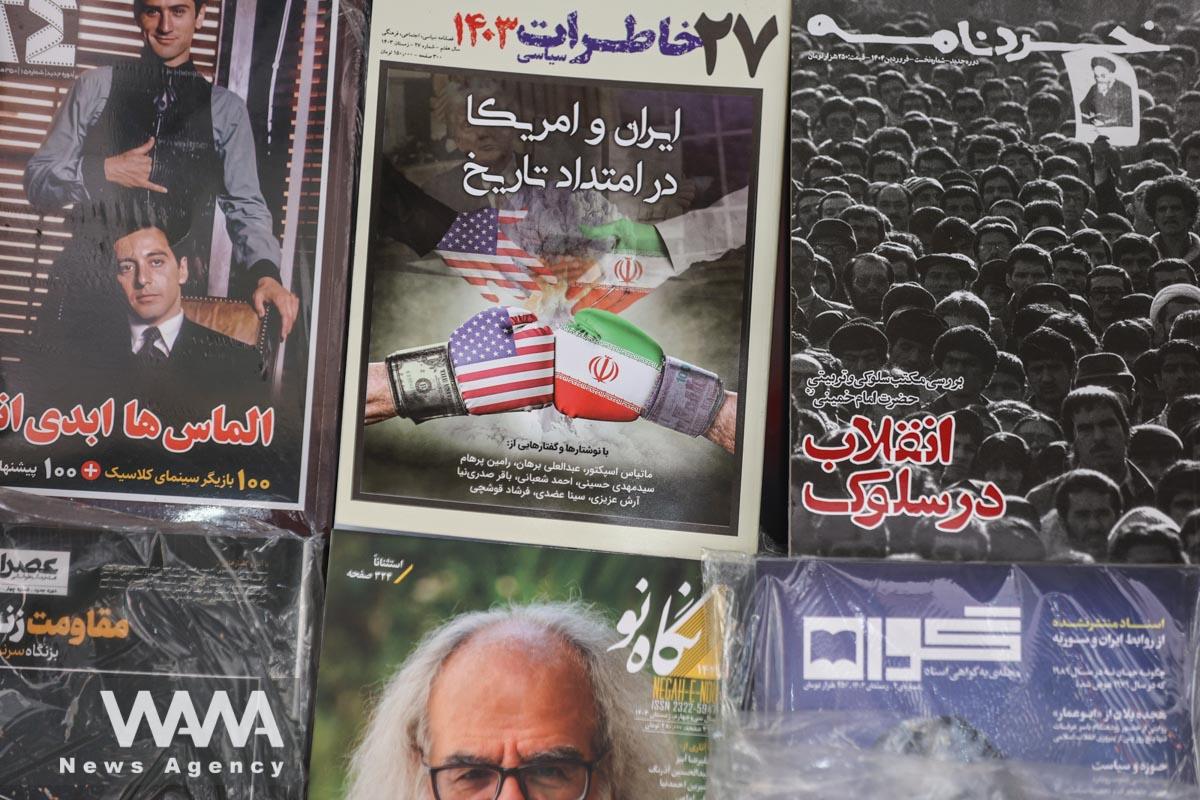Have U.S.-Iran Negotiations Hit a Dead End?
WANA (Mar 04) – The postponement of the fourth round of indirect talks between Iran and the United States—originally scheduled for May 3, 2025, in Rome—is not just a routine diplomatic delay. It reflects a complex web of misaligned interests, mounting external pressures, and a fatigued negotiation framework. While it may resemble a deadlock on the surface, beneath it lies a layered and multidimensional message.
The Iranian Foreign Ministry described the delay as evidence of a lack of “goodwill and seriousness” on the American side, stating in an official release that “U.S. sanctions are a clear indication of the contradictory approach of American decision-makers.” This statement came as the tone of the third round of talks had already turned cold, with journalists noting a lack of mutual trust.
What sets this delay apart from previous diplomatic pauses is the convergence of several deeper factors:
Internal Disputes within U.S. Power Structures
Despite the image of cohesion projected by the newly reinstated Trump administration, significant rifts remain regarding foreign policy strategy. As John Mearsheimer, prominent University of Chicago professor, put it: “Trump, Vance, and many of his advisors oppose war with Iran because they know no military strike can stop Iran’s nuclear program—only delay it for a few years.”
On the other hand, figures like Mike Waltz (former Trump national security advisor), his successor Marco Rubio, and Alex Wong have taken a more hawkish stance, causing unpredictable shifts in diplomatic posture. A threatening tweet from the U.S. Secretary of Defense, retweeted by chief negotiator Steve Witkoff, poisoned the atmosphere in Rome even before talks resumed, prompting Iran to suspend its participation.
Why the U.S. Will Not Go to War with #Iran
There are several reasons why the #UnitedStates will not engage in a war with Iran:
First, Iran possesses significant offensive capabilities—particularly at sea. If…https://t.co/gVhopKccLC— WANA News Agency (@WANAIran) May 3, 2025
The Shadow of Israel and External Pressures
Iran has made it clear that it will not allow the negotiation table to become a channel for Israeli messaging. Tehran’s red lines—its missile program and regional alliances—are non-negotiable. Any behind-the-scenes effort to insert these issues into nuclear talks is, in Iran’s view, a sign of overreach and bad faith.
As one Iranian analyst bluntly noted: “When you don’t push back, the other side sees it as weakness. So, they push harder.”
Oman’s Role: Logistical or Tactical?
Publicly, the Omani mediator attributed the delay to “logistical problems.” But analysts interpret this as diplomatic cover for deeper uncertainties within the negotiation path. Some news sources point to internal divisions within the U.S. team that may have led to the postponement.
Europe: Sidelines or Center Stage?
The three European signatories of the JCPOA—Germany, France, and the UK—remain formally committed to the deal but are now playing a more active, albeit riskier, role. Their threat to invoke the “snapback” mechanism, reinstating U.N. sanctions on Iran, could force Washington to rethink its approach. However, it also risks derailing diplomacy altogether. These same complications led to the delay of Iran’s meeting with the European trio in Rome.

A book with a cover design of the Iran-US negotiations is seen in Tehran, Iran, April 26, 2025. Majid Asgaripour/WANA (West Asia News Agency)
Iran: Neither War Nor Unbounded Negotiation
Iranian domestic analyses suggest Tehran is now firmly limiting negotiations strictly to nuclear issues. There will be no allowance for discussions on missile capabilities, regional influence, or ideological policies. As political analyst Ali Mokhtarzadeh put it: “Time now favors those who are not in a rush.”
This stance aligns with the bold statements of figures like Esmail Baqaei: “We will resist U.S. intimidation and pressure with all our strength.”
Although the delay might initially appear as a failure, it could in fact signal a strategic recalibration. Tehran has suspended the talks knowing that time, for now, incurs no cost the U.S. can leverage.
Iran’s strategy of economic resilience, growing ties with the East—including China, Russia, and BRICS—and participation in projects like the North-South Corridor are all tools giving Tehran breathing space during this diplomatic pause. It may be reshaping the table before returning to it.
In contrast, Washington finds itself under pressure—whether from European allies desperate to salvage the JCPOA, domestic lobbies interpreting every delay as a defeat, or from Israel, whose shadow continues to loom over every negotiation.
So, Are the Talks between Iran and U.S. Dead?
Not quite. A delay is not a deadlock. This pause may offer an opportunity to reset positions, mend internal rifts, and rearrange diplomatic forces. If diplomacy is to be the path that avoids war, it must follow the rules of engagement—not the rules of tweets and sanctions.
And if history has taught us anything, it’s that negotiation without mutual respect is merely performative theater. It might draw an audience, but it never brings closure.













